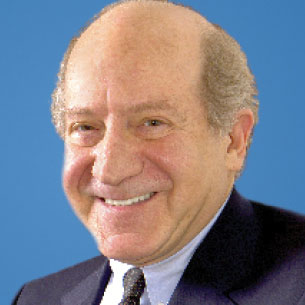Dear Colleagues:
The most commonrisk for canceris also the leastpreventable—advanced age. Asour cover storyon this topic notes (and as most of usknow by now), the number of peopleover 65 will increase significantly inthe near future.
Currently,those over65 accountfor 60%of cancerdiagnoses.Couple thesestatisticswith the expected shift in demographicsand it’s clear that the number ofpatients with cancer will increase significantly. To paraphrase geriatriconcology expert Dr. Stuart Lichtman:What this means for our profession isthat geriatric oncology is not a nichespecialty; all oncologists are geriatriconcologists (or soon will be), whetherwe know it or not.
This trend presents its share of challenges.Older patients are at increasedrisk for toxicity, and they remain lessrepresented in clinical trials. To compoundthe issue, just as the number ofpatients with cancer increases, therewill be fewer oncologists on hand totreat them due to an impending oncologyworkforce shortage.
Fortunately, all of this has been on theSociety’s radar for a number of years. Read more about theneeds of older patients with cancer andhow ASCO is providing the educationalopportunities, research advocacy, datamining, and workforce initiatives tomeet the growing demand.
Many of our patients both old andyoung—those in treatment as well asthose seeking to prevent cancer—wantto know whether or not they shouldtake vitamins or supplements. This is a thorny issue often rife with controversyand conflicting information. In the Current Controversies in Oncology article, two physicians sharetheir perspectives on the role supplementsand vitamins may play in cancercare and how they each respond topatients when asked this question.
Also in this issue, we bring you highlightsfrom two recent Meetings—the2014 ASCO Quality Care Symposium and the cosponsored 2014 PalliativeCare in Oncology Symposium;an interview with Stanley Winokur, MD,co-editor of a collection of personalessays from an impressive roster ofoncology professionals; and theresults of the 2015 ASCO Election.
As always, thank you for reading.
The most commonrisk for canceris also the leastpreventable—advanced age. Asour cover storyon this topic notes (and as most of usknow by now), the number of peopleover 65 will increase significantly inthe near future.
 | |
| Stuart M. Lichtman, MD, FACP |
This trend presents its share of challenges.Older patients are at increasedrisk for toxicity, and they remain lessrepresented in clinical trials. To compoundthe issue, just as the number ofpatients with cancer increases, therewill be fewer oncologists on hand totreat them due to an impending oncologyworkforce shortage.
Fortunately, all of this has been on theSociety’s radar for a number of years. Read more about theneeds of older patients with cancer andhow ASCO is providing the educationalopportunities, research advocacy, datamining, and workforce initiatives tomeet the growing demand.
Many of our patients both old andyoung—those in treatment as well asthose seeking to prevent cancer—wantto know whether or not they shouldtake vitamins or supplements. This is a thorny issue often rife with controversyand conflicting information. In the Current Controversies in Oncology article, two physicians sharetheir perspectives on the role supplementsand vitamins may play in cancercare and how they each respond topatients when asked this question.
Also in this issue, we bring you highlightsfrom two recent Meetings—the2014 ASCO Quality Care Symposium and the cosponsored 2014 PalliativeCare in Oncology Symposium;an interview with Stanley Winokur, MD,co-editor of a collection of personalessays from an impressive roster ofoncology professionals; and theresults of the 2015 ASCO Election.
As always, thank you for reading.
Disclaimer:
The ideas and opinions expressed on the ASCO Connection Blogs do not necessarily reflect those of ASCO. None of the information posted on ASCOconnection.org is intended as medical, legal, or business advice, or advice about reimbursement for health care services. The mention of any product, service, company, therapy or physician practice on ASCOconnection.org does not constitute an endorsement of any kind by ASCO. ASCO assumes no responsibility for any injury or damage to persons or property arising out of or related to any use of the material contained in, posted on, or linked to this site, or any errors or omissions.


Recent posts